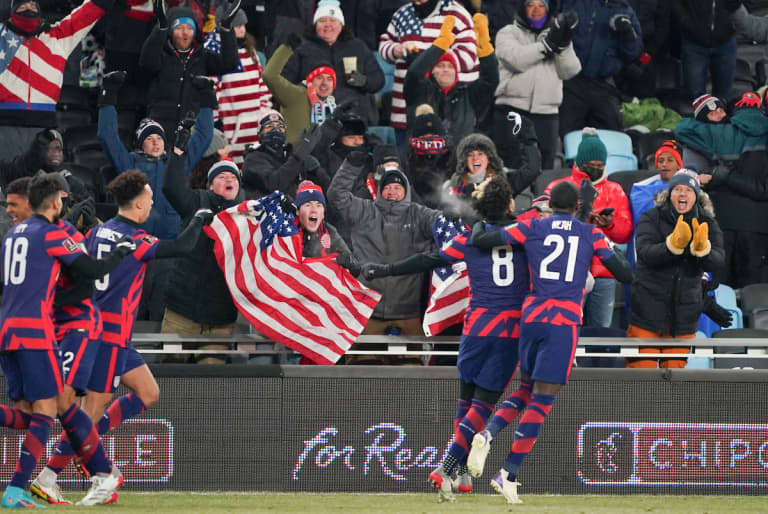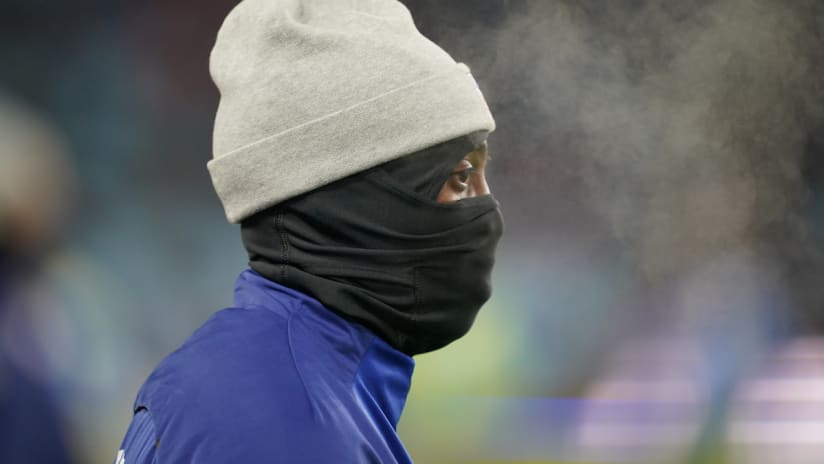The air temperature at Allianz Field was a mere 5 degrees Fahrenheit at kickoff, making Wednesday night’s World Cup qualifier vs. Honduras the coldest match in US men’s national team history.
The bone-chilling Minnesota midwinter conditions tested the mettle of the 19,202 spectators in the sellout crowd as well as the players, with US goalkeeper Matt Turner in clear discomfort and Honduran starters Luis Lopez and Romell Quioto reportedly unable to retake the pitch for the second half due to hypothermia.

For Gregg Berhalter and his USMNT colleagues, it’s all part of the ruthless race for a place in the Qatar 2022 World Cup.
“What I would say is that we provided Honduras and their staff, and the referees, with warm weather gear, we provided them headgear [balaclavas], trying to make it a safe environment for them to play in,” said Berhalter in his postgame press conference, warming from subzero wind chills.
“When we scheduled this game in this location, you have to go by average temperatures, daily average temperature, and it was the best guess. We wanted to minimize travel. We knew we were going to be playing in cold weather in two of the games and we figured to do it in the third game as well instead of switching climates. A cold spell came through and it's something we can't control. But all we can do once that happens is try to mitigate the risk by having warm weather gear and going out there and competing, and we did that.”
His Catrachos counterpart offered a very different perspective.
“It is difficult, very complicated. Soccer is not for suffering like that,” lamented Honduras manager Hernan “Bolillo” Gomez after his already-eliminated team’s 3-0 loss. “I cannot analyze the boys in this type of environment and match climate.
“In this qualifier, the United States does have an important difference, but playing like that doesn't work. It is not a football spectacle, it is not normal. In this situation, I am not able to do an analysis of the players. I'm not able to do it.”
Throughout the leadup to this massive match – which he said wasn’t a must-win, but outstanding US midfielder Luca de la Torre readily described as such – Berhalter maintained that ensuring maximum home-field advantage was the paramount concern and that the cold would not prevent his team from playing at their desired level.
His players mostly concurred upon staying second in the Octagonal standings, though Tim Weah did confess his difficulties on Instagram.
“I think if you focus too much on the weather, then it can really kill you,” said de la Torre, who seized the opportunity extended to him during his first career start in a World Cup qualifier. “If you're worried about how your body reacts, or all the negative things that can happen, then you can have problems. But I just tried to focus on the moment, and especially in the second half, I didn't notice it very much.”
Asked repeatedly about the conditions and the venue selection, Berhalter drew a parallel to the sweltering heat and humidity to which Honduras, among others, often subject the USMNT and other visiting sides in San Pedro Sula. (Los Catrachos scheduled their 2013 Hexagonal home match vs. the Yanks in midday heat, though they hosted this cycle’s matchup at night, a 4-1 comeback win for the US in September.)
“When we go down to those countries, and it's 90 degrees and 90% dew point and it's unbearable humidity and guys are getting dehydrated and cramping up and getting heat exhaustion, that's the nature of our competition,” said Berhalter.
“You're asking the question, insinuating that we're the only ones playing in these types of conditions. Canada scheduled the game up in Hamilton, and it was in the teens. So for us, again, we're trying to minimize travel in this window, and try to keep the weather somewhat consistent. And that was our focus. And then the third thing is we want to win our home games.”
Noting that it’s generally unusual to play competitive international matches at this time of year, Berhalter also cited his program’s tradition of memorable cold-weather qualifying victories in Columbus and Colorado.
“It's not common that we play in January, that we have World Cup qualifiers in January due to COVID; we had to reschedule and they had to put this January window in. So I'm not sure if it will continue or not,” he said. “But I know that we've had some historic wins in adverse conditions, Mexico in Columbus, the Denver game against Costa Rica. And these two last games in Columbus and Minnesota have been big wins for the program.”













